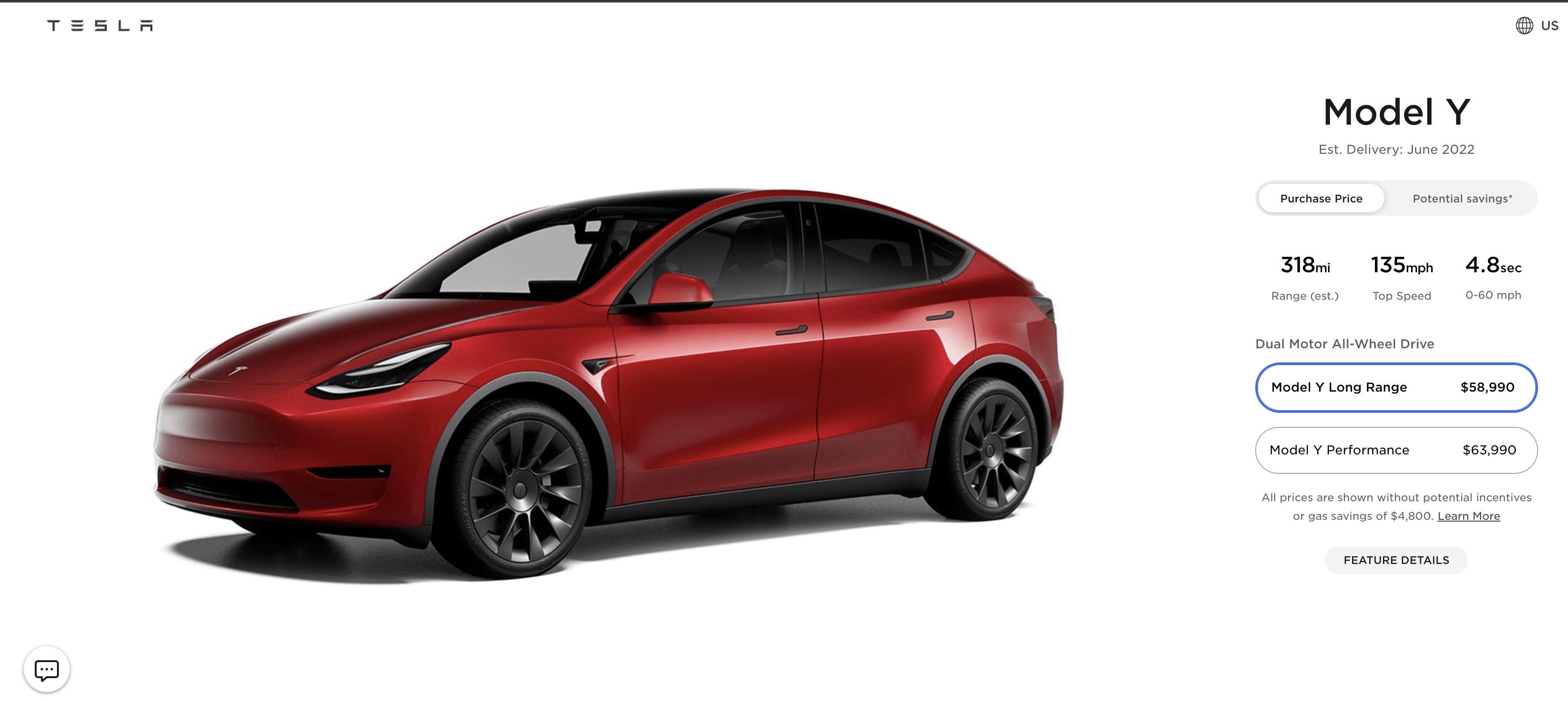Every Tesla is engineered to provide maximum safety for drivers, passengers and pedestrians. In 2020, Model Y earned a 5-star safety rating in every category from the National Highway Traffic Safety Administration (NHTSA), achieving our goal of making Model Y one of the safest vehicles available.
This week, the Insurance Institute for Highway Safety (IIHS) named Model Y a Top Safety Pick+, the organization’s highest level of recognition. This result comes after Model Y scored the highest possible ratings in all IIHS crashworthiness and front crash avoidance tests.
In May 2021, Model 3 and Model Y cars built for the North American market transitioned to Tesla Vision, our camera vision and neural net processing system that delivers Autopilot, Full-Self Driving capability and certain active safety features. Beyond physical crash tests, IIHS places significant emphasis on crash avoidance technologies, which help reduce impact severity or prevent accidents from happening altogether. Following this transition, both Model Y and Model 3 received “superior” ratings in both vehicle-to-vehicle and vehicle-to-pedestrian crash-avoidance tests, the highest possible scores.
IIHS’ assessment program also focuses on three variations of offset frontal crash tests: moderate overlap, driver-side small overlap and passenger-side small overlap. Small-to-moderate overlap frontal crash tests are very common in head-on collisions, in which energy is focused on a smaller area of the car’s crash structure. Model Y’s large front and rear crash structures are designed to crumple more efficiently than traditional vehicles, optimizing the deceleration during a crash event to minimize occupant injury risk. In these crash tests, Model Y achieved the highest possible score in each occupant injury criteria. Additionally, assessment of the safety cell – the rigid structure that surrounds the passenger compartment – returned top ratings for crashworthiness in every test conducted.
Like all Teslas, Model Y benefits from the same structural architecture that make our other vehicles so safe: energy-absorbing side sills that act as side-impact crumple zones, a fortified battery pack mounted low in the vehicle to reduce rollover risk and a metal body structure that can withstand many times the car’s weight.
Safety isn’t just the starting point for every Tesla, it’s also a part of our iterative design process in which we introduce new features throughout a vehicle’s life via new safety hardware and over-the-air software updates. Recent examples include refinements to airbag and restraint behavior to help protect occupants in real world, off-zone crashes. For more information about Tesla’s approach to safety, please visit tesla.com/safety.





